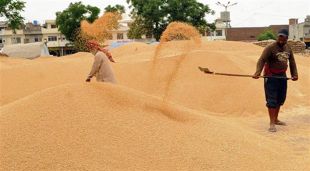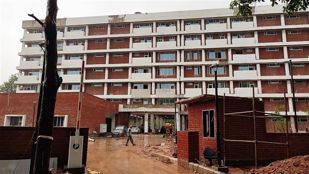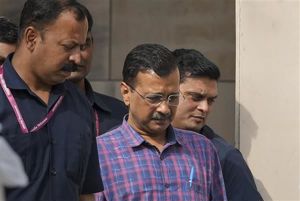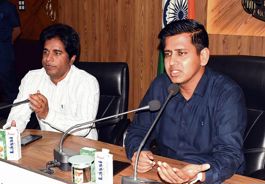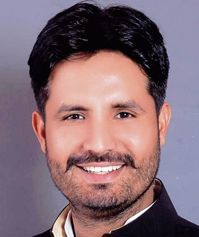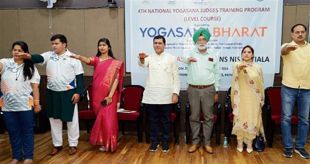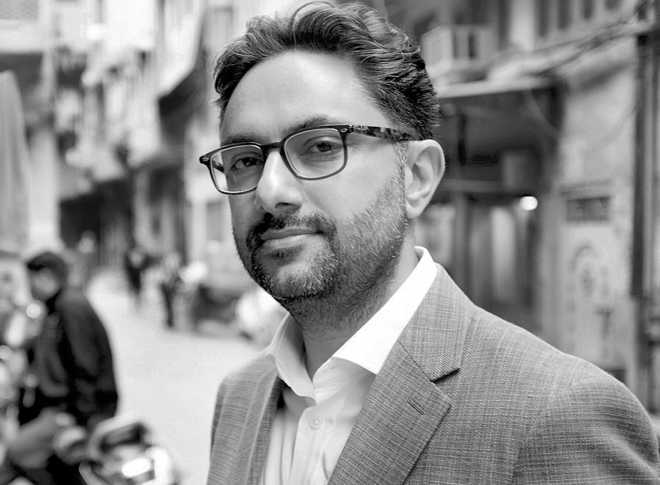
Rewind: Sathnam Sanghera’s documentary, The Massacre that Shook the Empire, is one of the many efforts towards bringing Raj’s gory past to light.
Sonoo Singh
I once sat in my son’s history class in his primary school and saw him fall in love with the subject. He was enchanted with the wonder box of stories. It wasn’t right, however, that he knew the names of all the six wives of King Henry VIII and his ‘head-rolling’ past but nothing about the gory history of the British Empire. So, we decided to sit down and have a conversation about the Empire, the Partition of India and the Jallianwala Bagh massacre.
It did nothing, but confused him. Questions about identity, the meaning of being British and how “bad” the English had been were raised. Just the sentiments that writer-journalist Sathnam Sanghera, who explores what happened on April 13, 1919, in a Channel 4 documentary, also acknowledges.
I spoke to Sanghera ahead of the launch of the film, The Massacre that Shook the Empire, that coincided with the centenary commemoration of the event. “There is this narrative in Britain that we have always been the good guys. The Amritsar massacre shows that sometimes we were the bad guys and sometimes we were racists. We need to come to terms with that.” A century ago, Brigadier General Reginald Dyer had ordered troops to gun down a crowd of men, women and children, gathered at a park in Amritsar, following the orders of the then Punjab Lieutenant Governor, Michael O’Dwyer.
As a British Sikh, Sathnam tells me his first introduction to this very dark period in both British and Indian history was through Richard Attenborough’s Gandhi, which he saw only a decade ago. “There’s this view in the British circles that the Empire wasn’t too bad for the Sikhs. And I have, in the last few years, educated myself about the Empire. It has been quite difficult and this documentary is part of that education.”
Like all debates, we need to be first and foremost ‘educated’ in classrooms that provide a balanced reappraisal of our histories. Unfortunately, very little is taught in British schools when it comes to the British Empire and colonialism. Somewhat encouraging is the fact that in the run up to the centenary, the country has, for the first time, seen a heightened discourse around the massacre.
So, while there is Sathnam’s film exploring the legacy of the massacre through the descendants of the survivors and General Dyer’s great-granddaughter, Caroline, political journalist and broadcaster Anita Anand recently unveiled her book, The Patient Assassin. It is a gripping tale of Udham Singh, who is said to have been injured in the attack and remained surrounded by the dead until the next morning. Two decades later, he would shoot Michael O’Dwyer in England. Kishwar Desai, chairperson, The Arts and Cultural Heritage Trust, has organised a collaborative exhibition to commemorate the event both in Manchester and in London.
Prominent South Asians have been making all the right noise. Actor Meera Syal has been urging fans on social media to watch the Channel 4 documentary: “Watch this — the history none of us were taught at school but which we need to retell to unpick the myths about Empire.” London mayor Sadiq Khan has been talking about it too.
Of course, around this time of the year, there always are debates among the British chattering classes. Colonialism apologists are pitted against humanist historians who try to shake us all out of amnesia when it comes to the horrors of the British Empire. But this year, Brexit has intensified these discourses. “With Brexit happening, we’re trying to redefine our relationship with the world and I think we should sort it out, confront it [our history],” says Sanghera.
And once again Britain is being asked to apologise to India. Sanghera, who says he has changed his mind about a formal apology from Britain, explains: “This event is the prism through which a lot of Indians see Britain. We never apologised, but made it worse instead. The House of Lords exonerated General Dyer. Prince Philip, a few decades ago, questioned the number of people who died there. We should apologise.”
But before everything else, it is time to acknowledge the past and shape the debates about our present and the future.





















